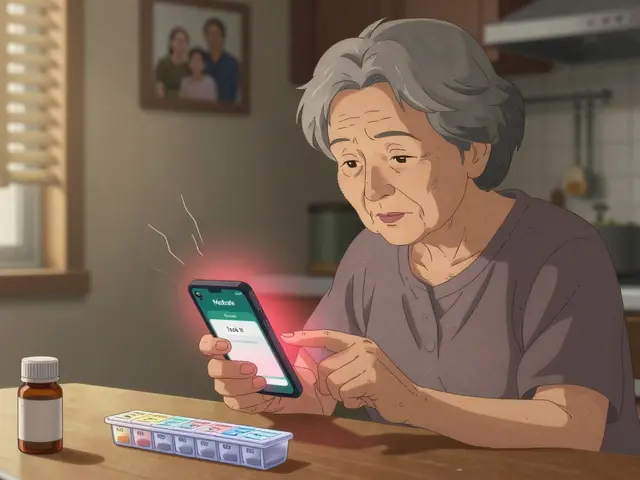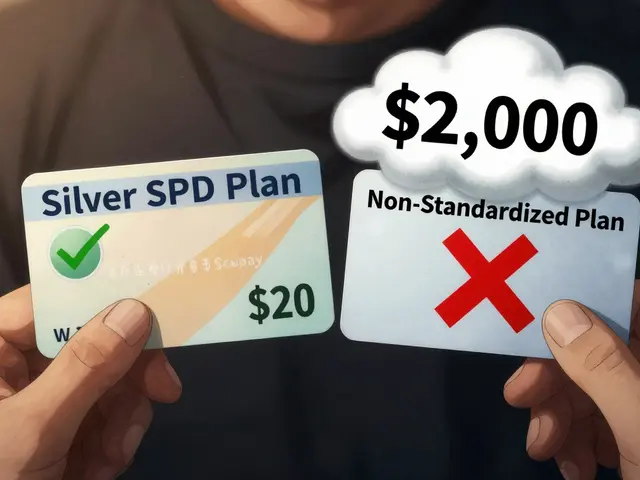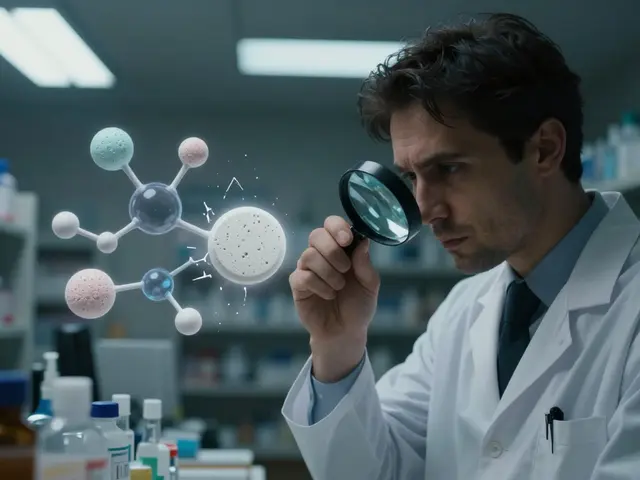Drug Interactions: Simple Ways to Stay Safe
If you’ve ever taken two pills at once and felt weird, chances are you ran into a drug interaction. It’s not magic – it’s chemistry in your body. Knowing the basics can stop unpleasant side effects before they start.
Why Interactions Happen
Every medication is broken down by enzymes in your liver. Some drugs speed up this process, making other meds disappear too fast; others slow it down, causing a buildup that can be toxic. Think of it like traffic: if one car stops suddenly, the cars behind have to brake or crash.
For example, Rifampin (an antibiotic) ramps up liver enzymes. If you take it with certain birth‑control pills, those pills become less effective. That’s why doctors always ask about other meds before prescribing Rifampin.
Everyday Red Flags
Here are quick checks to catch risky combos:
- Ask about OTC and supplements. Even a vitamin D pill can change how a prescription works.
- Watch for foods that matter. Grapefruit juice blocks the same enzyme that many heart meds need, raising their level in your blood.
- Check timing. Some drugs need to be taken several hours apart. Stacking them can double up on side effects.
If you notice new dizziness, nausea, or a rash after adding a medication, note the start time and tell your pharmacist right away. These symptoms often signal an interaction.
Practical Steps to Avoid Problems
1. Keep a list. Write down every prescription, over‑the‑counter drug, herb, and supplement you use. Update it whenever something changes.
2. Use one pharmacy. When all your meds go through the same place, the pharmacist can run an interaction check automatically.
3. Read labels. Look for warnings about “may interact with” or “avoid using with.” If it’s unclear, a quick call to the pharmacy clears it up.
4. Ask your doctor. Before starting a new drug, say, “Will this mix with anything I’m already on?” Most doctors appreciate the question and will double‑check.
5. Don’t self‑adjust doses. If you think a medicine is causing trouble, don’t stop it cold turkey. Talk to a professional first – sudden changes can be worse.
Common Culprits You Might Recognize
Some drug groups are notorious for interactions:
- Antidepressants + blood thinners. Can raise bleeding risk.
- Heart meds + certain antibiotics. May cause irregular heartbeat.
- Statins + grapefruit juice. Increases chance of muscle pain.
Knowing these pairings helps you stay ahead. If any of them sound familiar, double‑check your regimen.
When to Seek Help
If you experience severe symptoms – trouble breathing, sudden swelling, or chest pain – treat it as an emergency. Call 911 or go to the nearest ER. For milder issues like a persistent headache or mild rash, call your doctor’s office during business hours.
Remember, drug interactions are preventable. A few minutes of checking can save you from weeks of discomfort. Keep your medication list handy, talk openly with your healthcare team, and use the tools your pharmacy offers. Your body will thank you for staying one step ahead.

Drug Interactions: Same Risk for Generic and Brand Medications
Generic and brand-name drugs have the same active ingredients, so their risk for drug interactions is essentially identical. Learn what really matters - and what doesn't - when switching medications.
read more
Antipsychotics and Cardiac Medications: Understanding QT Prolongation Risks
Antipsychotics can prolong the QT interval, increasing the risk of dangerous heart rhythms. Learn which drugs carry the highest risk, how to monitor for danger, and why avoiding treatment can be more deadly than the medication itself.
read more
Asthma and COPD Medications: Key Interactions and Safety Risks You Need to Know
Asthma and COPD medications can interact dangerously with common drugs like painkillers, antibiotics, and sleep aids. Learn which combinations to avoid and how to protect your breathing with a simple safety checklist.
read more
What Are Drug Interactions and Why They Matter for Medication Safety
Drug interactions occur when medications, foods, or health conditions change how a drug works in your body-potentially causing serious harm or reducing effectiveness. Learn what causes them, who's at risk, and how to prevent dangerous combinations.
read more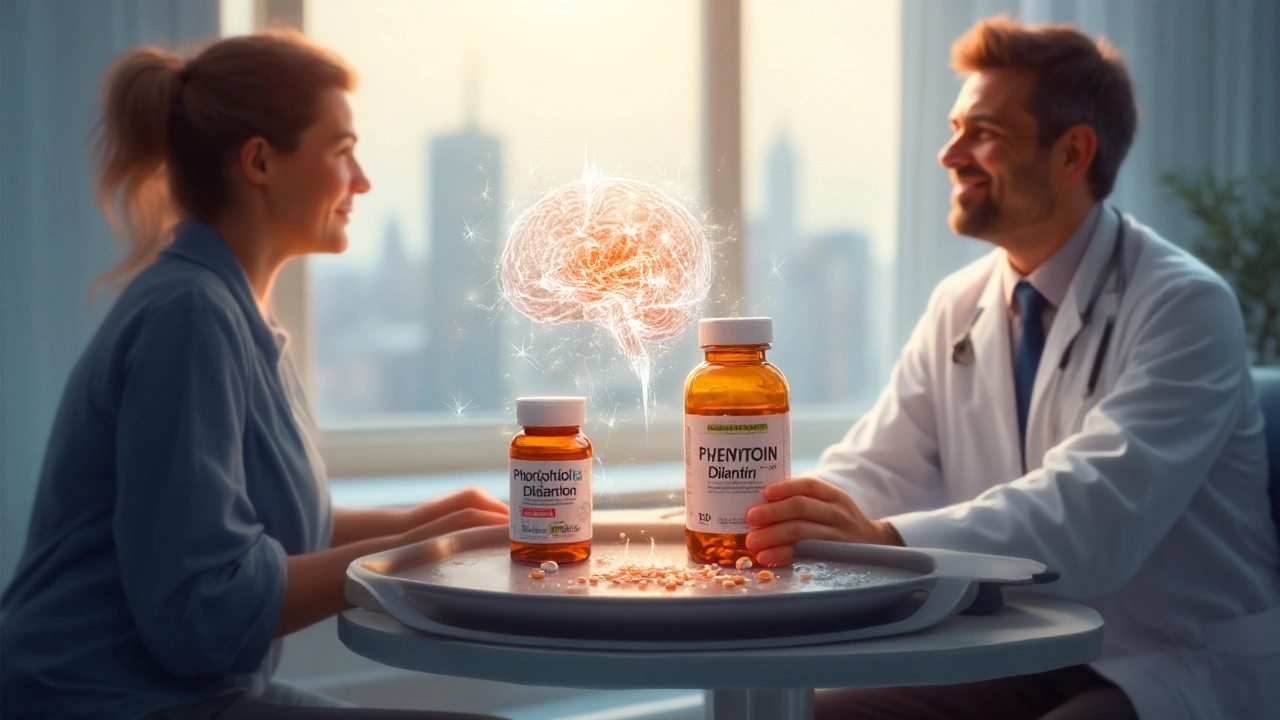
Dilantin (Phenytoin) vs Modern Antiepileptic Alternatives: A Practical Comparison
Compare Dilantin (phenytoin) with newer antiepileptic drugs, covering mechanisms, side‑effects, interactions and how to pick the best option for seizure control.
read more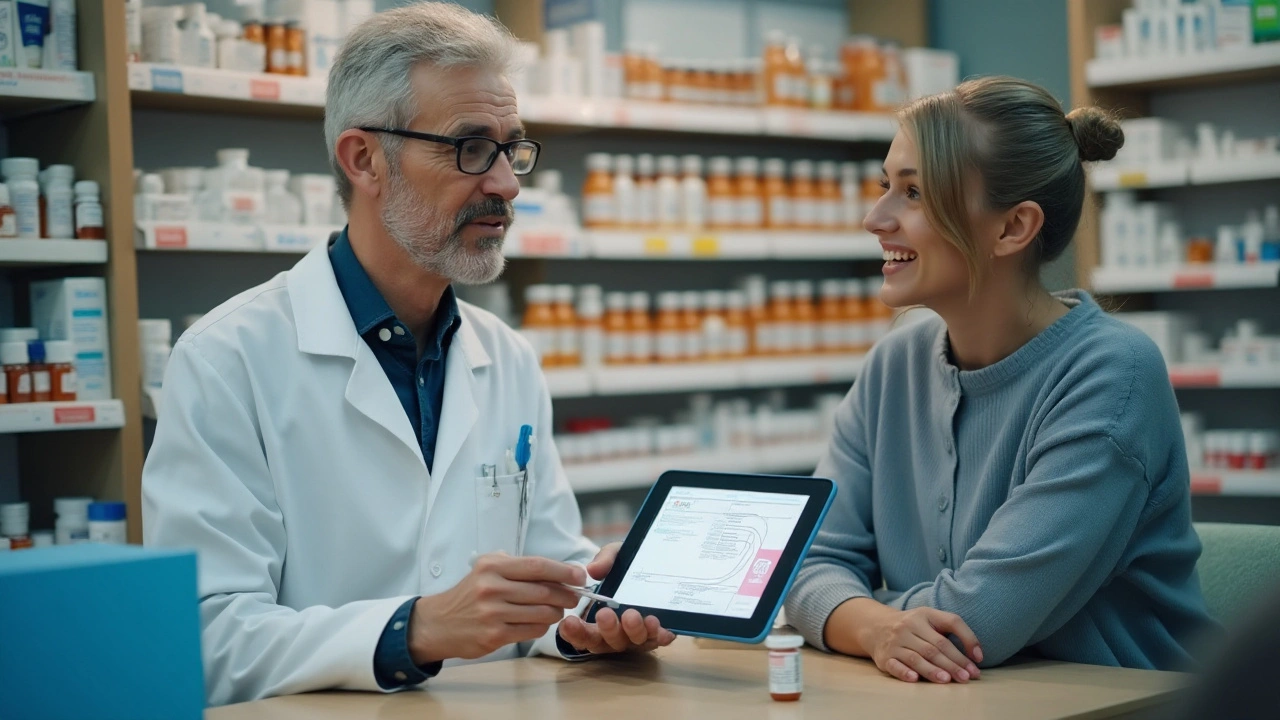
Essential Indapamide Interactions: What to Steer Clear Of
Understanding the interactions of Indapamide is crucial for achieving the best therapeutic effects while minimizing risks. Indapamide, a widely used diuretic, can interact with various substances, leading to potential health complications. This article sheds light on what to avoid when taking Indapamide, providing insights into drug interactions, dietary considerations, and lifestyle choices. By becoming aware of these key elements, individuals can ensure a safer and more effective use of this medication.
read more
Dabigatran and Drug Interactions: What Patients Need to Know
Dabigatran is a commonly prescribed blood thinner that can interact with various other medications, which is something we all need to be aware of. These interactions can either increase the risk of bleeding or reduce the effectiveness of Dabigatran. It's crucial to discuss all medications, including over-the-counter drugs and supplements, with your doctor when starting Dabigatran. Paying attention to these details can help manage potential risks. Remember, being well-informed is an essential part of maintaining your health.
read more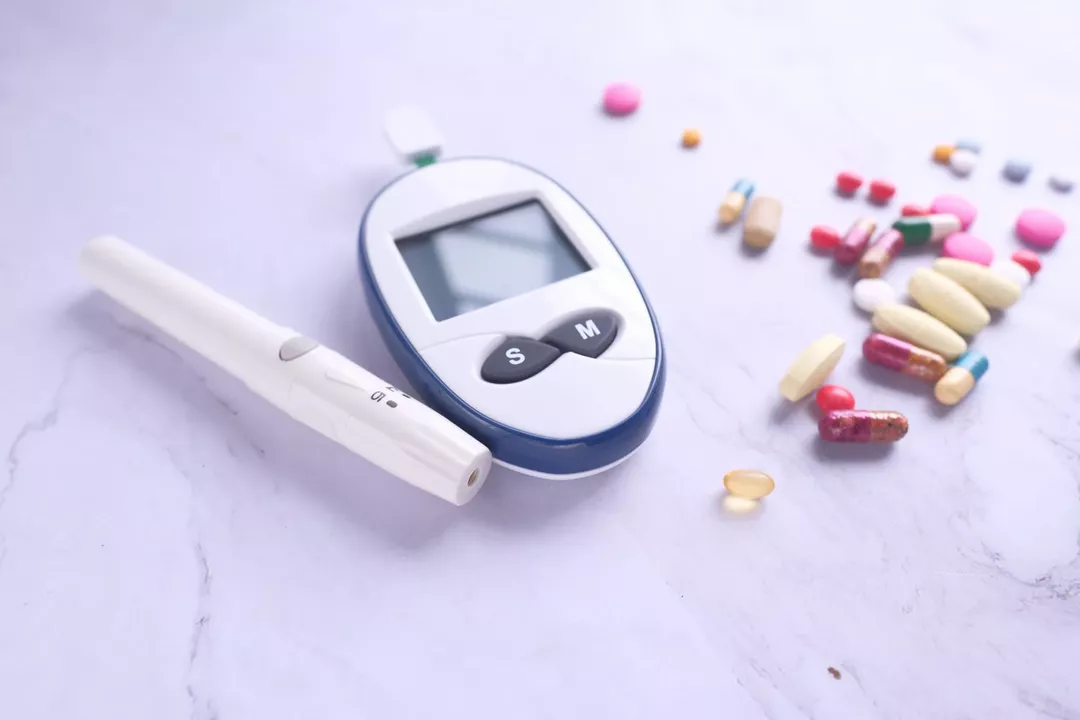
Atenolol and Diabetes: What You Should Be Aware Of
As a blogger, I feel it's crucial to inform my readers about the connection between Atenolol and diabetes. Atenolol is a beta-blocker commonly prescribed to patients with hypertension, but it's important to be aware of its potential impact on blood sugar levels. This medication can mask the symptoms of low blood sugar, making it difficult for diabetics to recognize and manage their condition. Additionally, Atenolol may reduce insulin sensitivity, further complicating diabetes management. So, if you have diabetes and are prescribed Atenolol, it's essential to discuss any concerns with your healthcare provider and monitor your blood sugar levels closely.
read more

